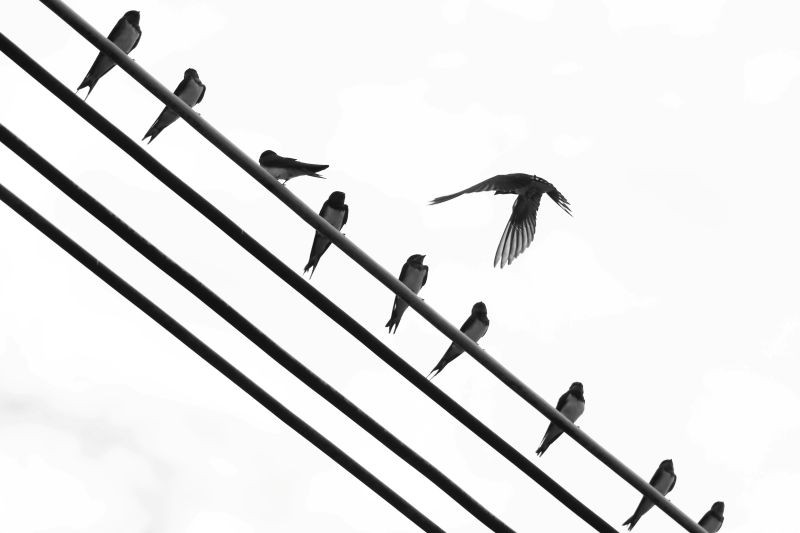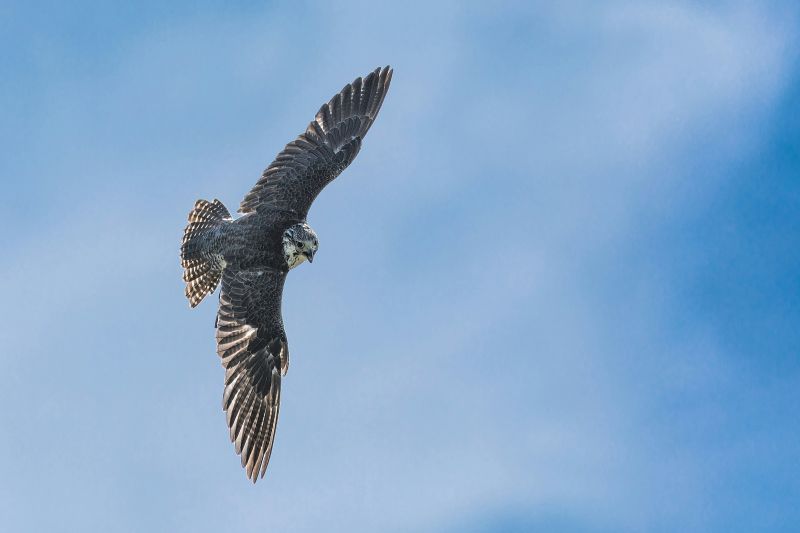Dreams and Flight: Wings of Freedom
Ambassador Oleksii Makeiev: “This week, at Friedrich Naumann Foundation’s invitation, I delivered the 19th Berlin Speech on Freedom, near the Brandenburg Gate. For the first time, a Ukrainian speaker joined the event, which previously featured notable figures like Kaia Kallas and Joachim Gauck. The audience included 500 guests, there was an online broadcast.”
Here is a shortened version of the speech, the full text of it in German can be found here.
What is freedom?
The answer varies—depending on who answers, when, and where they are. A few years ago, the essence of freedom on a Saturday night in Berlin’s Berghain might have felt in sync with a nightclub in Kyiv. But today, Kyiv is silent at night, save for the wails of air raid sirens and the menacing buzz of drones. A curfew has replaced techno beats, and those who once danced now fight—at the literal frontlines.
For many of Kyiv’s former ravers, freedom has taken a new form. No longer confined to dance floors, their fight is now for the lives of others—for the freedom of places like Berlin to continue thriving. For some, this battle became their last. The macabre dance of war stole them away, leaving behind only memories and a sobering question: What is this freedom they died for?
Read on Edemweiss.com: The Unfinished Revolution: Why Human Rights Still Matter
In the heart of Kyiv, a striking banner once declared, “Freedom is our religion,” a proclamation that shrouded the charred House of Trade Unions after the 2014 Revolution of Dignity. This uprising began with Ukrainian students standing against government tyranny and the state’s refusal to sign an EU association agreement. Though their peaceful protest was met with brutal police violence, their courage inspired nearly a million citizens to join them on the Maidan. Their rallying cry? Dignity.
Freedom in Action: Resistance Amid Shadows
The fight for freedom is not confined to revolutions or protests. It permeates everyday life, even amid adversity. Take, for example, Ukraine’s rail workers. Despite the chaos of war, they operate with precision, ensuring trains run on time. Their steadfastness reflects a deeper truth: freedom is not merely the absence of oppression but the presence of will—the determination to do what must be done, no matter the odds.
As history teaches us, where dignity is denied, freedom perishes. When human worth is trampled, the line dividing humanity is crossed. Freedom is, at its core, the defence of dignity—of standing against dehumanization.
Timothy Snyder’s book “On Freedom” captures this sentiment beautifully. He recounts the story of Maria, an elderly woman from Posad-Pokrovske whose village was liberated from Russian occupation. Yet, Maria’s true freedom came not from military victory but from the kindness of those who helped rebuild her home.
Freedom, Snyder argues, isn’t just the absence of evil; it’s the presence of goodness.
This duality—evil versus goodness—defines Ukraine’s skies today. Once a realm of dreams and flight, the sky now echoes with Russian missiles and kamikaze drones. For Ukrainian aviators like Nika Viknianskiy, the war has stolen more than just planes; it has destroyed dreams. Nika’s aircraft, obliterated by a drone, symbolizes the struggle between destruction and hope. Yet, hope persists. One day, Nika’s plane will fly again, and the Ukrainian sky will be free once more.
Ukraine’s affinity for flight runs deep. The country was home to “Mriya,” the world’s largest plane—a symbol of ambition and innovation. Tragically, this marvel was among the first targets of Russian aggression in 2022. Its destruction was a symbolic blow, yet it failed to extinguish the Ukrainian spirit. The Russians may possess planes and missiles, but Ukrainians have wings—born of dreams and a yearning for freedom.
The dichotomy between freedom and oppression is stark. While Ukrainians dream of soaring skies, released prisoners recount harrowing tales of Russian brutality. Torture methods are macabre—electric shocks through telephone wires, bleach-filled bags over heads, and grotesque “rides” that mock the very concept of humanity. In Russia, obedience replaces imagination, and the sky above remains a foreign concept. Yet, their hatred and destruction cannot reach the dreams that fuel Ukraine’s resilience.
Dreams and Flight: Wings of Freedom
Freedom as Will and Music
Freedom isn’t just the ability to dream; it’s the will to make dreams real.
For Ukraine’s ambassador to Germany, even music becomes an expression of this freedom. In the fall of 2022, a road trip to Germany became an unexpected moment of liberation. With planes grounded and night trains too restless for sleep, the choice to drive brought its own form of freedom: the freedom of a playlist.
Among the songs on that journey was Marius Müller-Westernhagen’s “Freiheit” (“Freedom”). Its lyrics—Freedom is the only thing that matters—resonated deeply. Music, after all, liberates the soul in ways words cannot. Westernhagen himself performed this anthem at a concert for Ukraine, underscoring the universal nature of freedom’s call.
A Collective Fight
Ukraine’s fight for freedom is not isolated; it echoes struggles worldwide. From the Revolution of Dignity to today’s war, each act of defiance reaffirms a universal truth: freedom cannot be divided. It thrives on unity, justice, and the collective will to dream, act, and persist. It lives in every protester, every soldier, and every citizen who chooses dignity over despair.
Though words may fall short of fully capturing freedom’s essence, it is through action, music, and resilience that its meaning becomes clear. In Ukraine’s skies, on its dance floors, and in its trenches, the fight for freedom continues—a testament to the indomitable human spirit.


